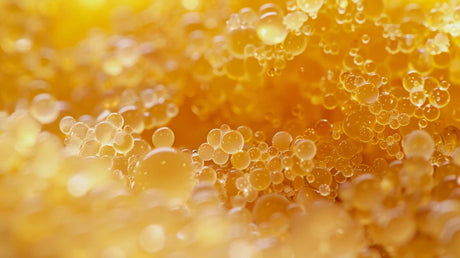
Low-Fouling Water Softener: Ideal for Treating Low Levels of Iron and Manganese
-
 Learn more
Learn moreThe Benefits of Using Ion Exchange Water Softeners for Iron and Manganese Removal
Low Fouling Resin Water Softener with Clack WS1 CI Valve (0.8 - 5.0 m³/hr)
From £470.50Unit price /Unavailable- £569.00Unit price /Unavailable
Eva Water Softener with Clack WS1 CI Controller
From £520.00Unit price /Unavailable
Low Fouling Resin Softeners Overview
GAPS Water Treatment: Your Trusted Supplier of Clack Low-Fouling Water Softeners
Experience the power of Clack's innovative low-fouling technology in our advanced water softeners. Designed to effectively remove iron, manganese, nickel, aluminium, lead, and hardness from your water supply, these softeners offer exceptional performance and durability.
Our Clack water softeners are engineered with cutting-edge technology to minimize fouling, ensuring consistent performance and reduced maintenance. With their advanced resin formulations and efficient backwash systems, these softeners deliver superior water quality while maintaining low operating costs.
Choose GAPS Water Treatment for Clack water softeners and benefit from our expert advice and reliable service. Our team can provide personalized guidance to help you select the ideal softener for your specific needs and water quality challenges.
Contact us today to learn more about Clack low-fouling water softeners and experience the difference in your water quality.
Why Buy From GAPS Water Treatment?
Discover Why GAPS Water Treatment is Your Top Choice for Water Filtration product solutions
Frequently Asked Questions
Low Fouling Water Softeners for Iron and Manganese Reduction
Why are iron and manganese in water a problem?
Why are iron and manganese in water a problem?
Iron and manganese are naturally occurring minerals often found in groundwater. While not harmful to health in small amounts, they cause various issues, such as:
- Staining: Iron leaves reddish-brown stains, while manganese causes black stains on laundry, fixtures, and appliances.
- Metallic Taste: These minerals give water an unpleasant metallic taste.
- Clogging: Over time, they can build up in plumbing and water heaters, reducing flow and efficiency.
- Appliance Wear & Tear: They can damage dishwashers, washing machines, and other appliances, shortening their lifespan.
What is a low fouling water softener?
What is a low fouling water softener?
A low fouling water softener is a specialized filtration system designed to minimize the accumulation of deposits within the unit, extending its lifespan and efficiency. It is particularly effective for reducing iron, manganese, and other heavy metals from your water supply.
How does a low fouling water softener work?
How does a low fouling water softener work?
These water softeners use advanced ion exchange technology to replace hard ions like calcium, magnesium, iron, and manganese with softer ions such as sodium or potassium. This process not only softens the water but also reduces heavy metal content, preventing fouling and prolonging the system's efficiency.
Can this water softener effectively remove iron and manganese?
Can this water softener effectively remove iron and manganese?
Yes, low fouling water softeners are specifically engineered to target and reduce iron and manganese levels in your water. This is critical for preventing orange or black stains and maintaining the taste and safety of your water supply.
What are the benefits of using a low fouling water softener?
What are the benefits of using a low fouling water softener?
A low-fouling water softener is an excellent choice when combined iron and manganese levels are below 2 ppm (2000 μg/L). Unlike other methods, it removes these metals without relying on pH or oxygen levels and doesn't require high flow rates for backwashing. Often used after treatments such as Filox-R or Birm, it effectively eliminates residual iron and manganese and serves as a backup if pH levels drop.
How is a low fouling water softener installed?
How is a low fouling water softener installed?
Installation typically involves connecting the unit to your home's main water line. It is advisable to hire a professional plumber to ensure proper setup and functionality. The process may vary depending on the specific model and water conditions.
What maintenance is required for a low fouling water softener?
What maintenance is required for a low fouling water softener?
Regular maintenance includes checking the salt levels, cleaning the resin tank, and occasionally replacing the resin beads. Most models feature an automatic regeneration cycle to maintain efficiency, reducing the need for frequent manual intervention.
Will it remove other metals besides iron and manganese?
Will it remove other metals besides iron and manganese?
Under optimal conditions, like a low pH level, it can reduce small amounts of aluminum, lead, nickel, and cadmium. However, methods like reverse osmosis or bone charcoal are more effective for this purpose.
What are the disadvantages of a water softener?
What are the disadvantages of a water softener?
- Increased Sodium Levels: Sodium-based water softeners can raise the sodium levels in your water, potentially exceeding the legal limit of 200 µg/L. GAPS Water Treatment can assist you in assessing the sodium impact based on your water's hardness.
- Environmental Concerns: The discharge of brine (salt and water) from regeneration cycles can contribute to environmental issues, particularly in regions with strict water conservation measures.
- Regular Maintenance and Salt Replenishment: To maintain efficiency, water softeners require regular maintenance, including checking salt levels and periodically replenishing the salt supply.
- Initial Installation Costs: The cost of purchasing and installing a water softener can be significant, especially if professional installation is required.
- Ineffectiveness Against Certain Contaminants: Water softeners are not effective in removing contaminants like bacteria, viruses, or organic compounds, necessitating additional filtration systems for comprehensive water treatment.








